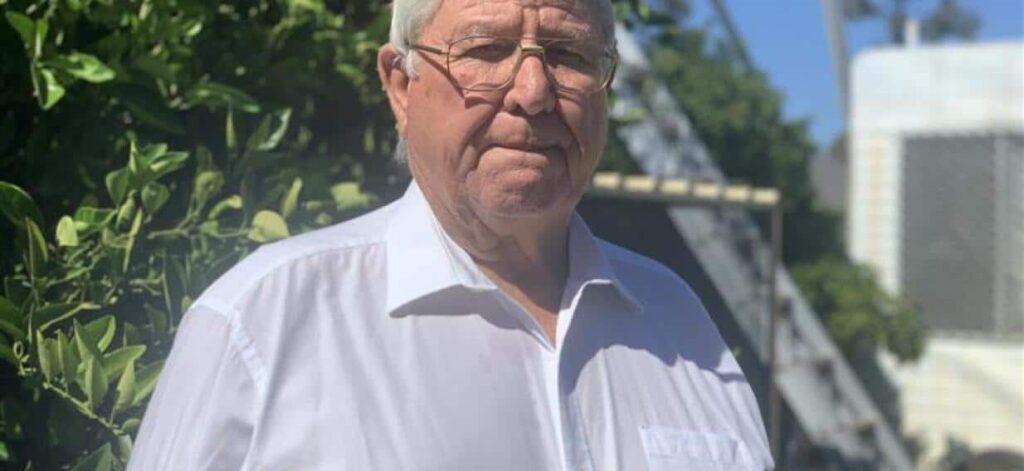The court of public opinion creates winners and losers. In Insight episode Trial by Media, Kumi Taguchi talks to those whose lives have been irrevocably shaped by media and public discourse. Watch at 8.30pm on Tuesday 4 June on SBS or on
.
I would like to think I will be remembered as Mayor of Claremont, a leafy community of western Perth, where I served for 12 years. But instead, I’ve been branded a suspected serial killer.
There are other things I could also be remembered for. I was president of the Council for Civil Liberties in Western Australia for 30 years. Plus I counselled Perth kids as a senior school psychologist.
But all the good work I’ve done for the community has been overshadowed by the hurtful reporting of Perth media, which pulled me apart for more than 25 years.
My turn of fortune started in 1997, when I was up for re-election as mayor in Claremont, months after Australian woman Sarah Spiers had disappeared in the area and two others, Jane Rimmer and Ciara Glennon, had been killed.
My role at the Council for Civil Liberties often put me at odds with the police, politicians, local journalists and publications. I have no idea why the media insinuated that I might be the Claremont serial killer, but I believe it was the reason I was never re-elected.
‘Mud sticks’
In July 1996, a headline in a newspaper read: “Mayor refuses to help Rimmer police”.
It portrayed me as uncooperative and implied I had something to hide.
Peter Weygers says the Perth media portrayed him as uncooperative in the investigation around the Claremont serial killings, which implied he had something to hide. Source: Supplied
This could not have been more untrue. A week after Jane Rimmer disappeared, I instigated the Mayor’s Night Walks, an audit of the town centre security, alongside police.
We hosted the Police Safety and Security Committee in the Town of Claremont council chambers.
I took six months’ leave to door-knock 4,500 homes and distribute police information and advice to residents on personal safety.
Then on polling day, a newspaper published the provocative headline, “Weygers ‘put off’ Glennon queries”. It was another totally misleading and untrue headline, timed perfectly to put voters off.
In 2004, two of my properties were raided by detectives in the name of the investigation.
Years after the Claremont serial killings, two of Peter Weygers properties were raided by detectives in the name of the investigation. Source: Supplied
The street was lined with vans and journalists from every media outlet, beaming live crosses around Australia.
Detectives took the opportunity to tell the media, who had collected in front of the family home, that I was a suspect.
On the day of the first raid, a journalist told me they’d been tipped off by police, no doubt to ensure they achieved maximum media coverage.
My name had been dragged through the mud — and mud sticks.
A past life
As Claremont’s mayor, I was hardworking and the trusted leader of the town, though the position at the time was unpaid.
At the Council for Civil Liberties, I stood up for the rights and liberties of people who suffered injustices at the hands of the state or institutions.
In my day job as a school psychologist, I took my role guiding children and young people very seriously. I took pride in the work I did to guide young Western Australians to be the best versions of themselves.
In all these roles, trust is crucial — not just from individuals but also the community.
My reputation was everything, and I held myself to the highest of standards in all I did.
Living in fear
The years of media attention destroyed my reputation. I was cast not just as a suspected murderer, but also as the suspected Claremont serial killer.
The coverage put my families’ lives in danger.
We lived in fear of vigilantes, convinced by the media that I was guilty.
People shouted at me in the street, calling me a murderer and threatening to harm my family.
Even something as mundane as going to the supermarket, where people stared, pointed and whispered, made me physically ill.
I had a severed cat head left in my letterbox.
I had spent most of my life in Claremont, but I’m now unable to spend any time there due to the trauma of public humiliation I experienced during my time as a servant of the very town I loved.
Peter Weygers says he is full of sympathy for the three victims of the Claremont serial killings and their families. Source: Supplied
I’m now 80 years old and I live with a serious heart condition. But the damage pales in comparison to the heartbreak my family and I have suffered in the name of this investigation.
I have so much sympathy for the three victims of this tragedy and their families.
As a life-long fighter for justice and civil liberties, what has happened to them I believe to be the ultimate injustice.
However, there is no excuse for the trial by media that destroyed my own life.
The media needs to be held accountable for this kind of reporting, and we need mechanisms to stop this from happening to any other innocent people and their families.
My family and I have received no apology from police or any media outlets for our treatment.
It’s a trauma we still live with today.
>>> Read full article>>>
Copyright for syndicated content belongs to the linked Source : SBS – https://www.sbs.com.au/news/insight/article/i-was-wrongly-branded-a-suspected-serial-killer-in-the-media-my-life-never-recovered/vm5jhp2zo
